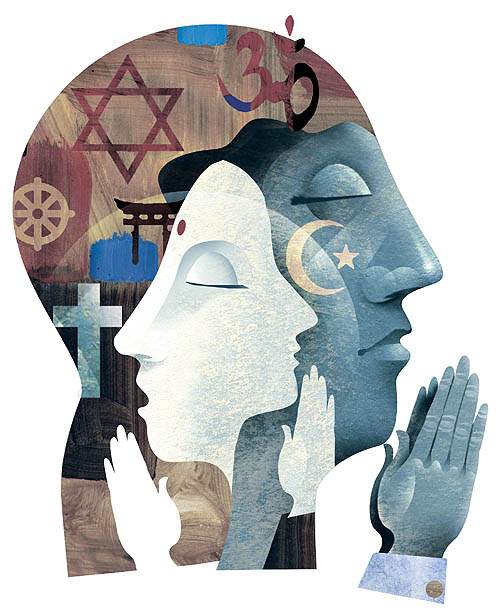Radical Pluralism

The God present in Jesus is God himself. It is not that Jesus in his own being is identical with the God who is present in him.– Reginald H. Fuller
I want to return now to process theologian John Cobb, who has written extensively on the subject of pluralism and the avoidance of relativism. Along with Complementary Pluralism (from the previous chapter), he has also written about Creative Transformation or Radical Pluralism. In this view, Christ is the Logos, the primordial nature of the Divine and the principle of creative transformation within all the religions.
Here we must step back a bit and look at Jesus and Christ in differing ways. In the same way that Pierre Teilhard de Chardin (1881-1955) wrote about the Cosmic Christ in 1916, Cobb wants us to expand our concept of Christ outward into the cosmos. In no way does he diminish the importance of the historical Jesus. What Cobb envisions is our faithfulness to the historical Jesus and the Logos that he incarnated.
In a column on the Process and Faith web site, Cobb responds to the question:
“Which is more important, the historical Jesus or the Cosmic Christ?” His answer:
“In order to answer relatively simply, I will understand the Cosmic Christ to be what, in the prologue to John’s gospel, is called the Logos. That identification answers the question. The Logos is more important. It is one with God, and there is no creation apart from the Logos.
“If we take Jesus seriously, we must assert the primacy of the Logos. Jesus points to God and calls on us to love God with all our being. Jesus is aware of the importance of his mission, but not in a way that is independent of the primary importance of God. In other words, the importance of the historical Jesus is not in competition with the importance of the Logos . . . When we identify the Logos with the Cosmic Christ we are recognizing how intimately the importance of these two very different kinds of realities is bound together. This unity is at the heart of the Christian faith.”
Critics of this view contend that it is too abstract and that Cobb has removed a principle (Christ) from the human being (Jesus). They argue that for most Christians, Christ is not a principle, but a person – Jesus. However, in light of recent biblical scholarship, that argument may not be as valid as perhaps it once was. The work of the Jesus Seminar on the search for the historical Jesus, and subsequent work by Marcus Borg (Meeting Jesus Again for the First Time and The Heart of Christianity) and others have made biblical scholarship accessible to the general reader. The distinction is made between the Pre-Easter Jesus (Jesus of Nazareth) and the Post-Easter Jesus (Jesus the Christ) or the Jesus of history and the Christ of faith.
In a different vein, explorations into a more mystical understanding of Christ (Matthew Fox’s The Coming of the Cosmic Christ) and William Countryman’s The Mystical Way in the Fourth Gospel) may also serve to make Cobb’s radical pluralism less abstract.
What Cobb accomplishes is a way to bring a cosmic Christian perspective to interreligious dialogue. Since the Logos (the Cosmos? the Tao?) is present in all religions, always creating, always opening us up to change, then the possibilities of learning from one another and being transformed in the process are endless.
While there are indeed those who focus solely on the historical Jesus and those who hold to a mysticism that would be more attuned to the Cosmic Christ, I believe that we can bring the two together in a way that enhances not only our own Christian path, but also our relationships with those of other paths.
In conclusion, we may have to accept that there will always be a balancing act between particularity and relativity in our belief system. This may cause consternation for those who want definitive answers and absolute dogma. However, if we trust that the creative power of God – whether we call that Christ or Logos or Spirit – is at work in us, then we can be courageous in opening ourselves to the work of living into a pluralistic theology.
From The INTRAfaith Conversation: How Do Christians Talk Among Ourselves About INTERfaith Matters by Susan M. Strouse, Wilgefortis Press, San Francisco (April 13, 2016)
Footnotes
(1) Reginald H. Fuller and Pheme Perkins, Who is This Christ? : Gospel Christology and Contemporary Faith. Philadelphia : Fortress Press, c1983, 8, quoted in S. J. Samartha, One Christ – Many Religions: Toward a Revised Christology. Maryknoll, NY: Orbis Books, 1991.
(2) Cobb, John. “Historical Jesus or Cosmic Christ.” processandfaith.org.
